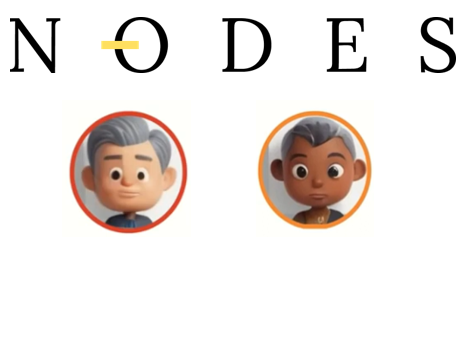Narratives are a key feature of any transfer of knowledge between people and an important method for conveying ideas, concepts, and values. The unique multidisciplinary methodology developed by the Narratives Observatory combatting Disinformation in Europe Systemically (NODES) combines quantitative and qualitative research to analyse and monitor the origin, development, and spread of narratives classified as “disinformation”.
Two practical workshops on “Understanding Narratives to Depolarise the Public Sphere – Recommendations and Lessons Learned”, directed to researchers and practitioners specialised in disinformation, took place on the 18th of March. After an initial presentation of results regarding the narrative research performed by the Narratives Observatory combatting Disinformation in Europe Systemically (NODES) on the subject of Climate Change, which was functional to the following interactive session, the workshop delved into different narratives by following fictional characters Wladek and Maria, two AI-based avatars that represented the two most polarised position on the topic.
Wladek is a former miner living in a small town, who was fired when the mining company closed during the “green transformation”. He is concerned that the swift changes caused by the green policies will destroy the traditions and habits that he cherishes, and he is thus representing the narrative that NODES researchers defined as “We must resist the green dystopia”.
Maria is a young mother of two children, who loves nature and outdoor activities like biking. She is concerned about the dramatic effects of climate change, and she is very worried about the future of her children. Recently, she has become pessimistic about the possibility of stopping this looming disaster. Therefore, she represents the narrative that NODES researchers dubbed “The apocalypse is coming”.
These two characters were introduced to show that, in many cases, those who share and subscribe to opposite narratives share similar values. In this specific case, the preservation of traditions and aversion to rapid changes can be easily detected by looking into the values underlying the two represented narrative communities. These common values can be used to build what the NODES researchers call a “narrative bridge”, which isn’t meant to silence differences or even to find consensus, but to make it possible to restart the debate from a common ground.
The analysis undertaken by the NODES researchers highlighted that, at least in the European narrative landscape, narratives are built around values and political ideas rather than specific claims or solutions. In our very polarised world, this novel methodology has the potential to significantly impact the discourse landscape in Europe and beyond, offering tangible strategies to mitigate polarisation and foster constructive dialogue.
If you want to know more about NODES and the researchers who work on narratives and disinformation, you can follow their social media channels and subscribe to the bi-monthly newsletter on the NODES website.




